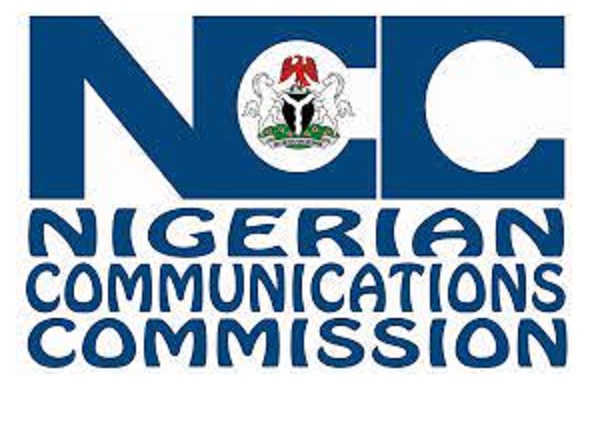What is Nigeria NCC Unified License? The Nigeria NCC Unified License refers to a licensing framework implemented by the Nigerian Communications Commission (NCC) for the telecommunications industry in Nigeria. The NCC is the regulatory body responsible for overseeing and supervising the telecommunications sector in the country. The Unified License is a comprehensive license that allows operators to provide various telecommunications services, including voice, data, and multimedia services, using a single license. This licensing framework aims to streamline and simplify the licensing process, encourage competition, promote investment in the sector, and ensure efficient delivery of telecom services to Nigerian consumers. Continue reading What is Nigeria NCC Unified License?
What do I gain by reading about What is Nigeria NCC Unified License?
Table of Contents
By reading about the Nigeria NCC Unified License, you can gain several benefits and insights:
Understanding the regulatory landscape:
The Nigeria NCC Unified License provides valuable information about the regulatory framework governing the telecommunications industry in Nigeria. This knowledge can help individuals and businesses comprehend the rules, policies, and guidelines set by the NCC, enabling them to navigate the industry more effectively. Read through What is Nigeria NCC Unified License?
Insights into licensing requirements:
Learning about the Unified License can provide you with an understanding of the specific requirements and procedures involved in obtaining a license to operate in the Nigerian telecommunications sector. This knowledge is crucial for businesses and entrepreneurs looking to enter the market or expand their services.
Awareness of licensing options:
The Unified License consolidates various telecommunications services into a single license, allowing operators to provide a wide range of services. By familiarizing yourself with the license, you can gain insights into the different licensing options available and explore the potential opportunities within the Nigerian telecommunications market.
Promoting compliance: What is Nigeria NCC Unified License?
Understanding the regulations and obligations associated with the Unified License can help operators and service providers ensure compliance with the NCC’s requirements. This knowledge is essential for avoiding penalties or legal issues that may arise from non-compliance.
Market insights and competition:
The Unified License aims to encourage competition within the Nigerian telecommunications sector. By learning about the license, you can gain insights into the market dynamics, key players, and competitive landscape. This information can assist businesses in developing effective strategies, identifying potential partnerships or collaborations, and making informed decisions to stay competitive in the industry. Check out What is Nigeria NCC Unified License?
Economic and investment opportunities: What is Nigeria NCC Unified License?
The Nigeria NCC Unified License is designed to promote investment in the telecommunications sector. By understanding the licensing framework, individuals and businesses can gain insights into the investment opportunities available in Nigeria’s telecommunications market. This knowledge can be valuable for investors, entrepreneurs, and stakeholders interested in exploring the potential for growth and development in the industry.
Overall, reading about the Nigeria NCC Unified License can provide you with a comprehensive understanding of the regulatory framework, licensing requirements, market dynamics, and investment opportunities in the Nigerian telecommunications sector. This knowledge can be beneficial for individuals and businesses looking to operate, invest, or engage with the telecommunications industry in Nigeria.
What is Nigeria NCC Unified License?
I. Introduction: A Brief Overview of the Nigerian Communication Commission (NCC). An Introduction to the Concept of a unified license.
The Nigerian Communication Commission (NCC) is the regulatory authority for the telecommunications industry in Nigeria. It was established in 1992 by the Nigerian Communications Act and operates under the supervision of the Federal Ministry of Communications and Digital Economy. Now, What is Nigeria NCC Unified License?
The NCC is responsible for the formulation and implementation of policies for the development and regulation of telecommunications services in Nigeria. Its main objectives include promoting competition, protecting the interests of consumers, ensuring the provision of qualitative and efficient telecommunications services, and encouraging investment in the sector.
One of the key concepts introduced by the NCC is the unified license. A unified license is a type of license that allows a company to provide multiple telecommunications services using a single license. It combines various services such as voice telephony, data transmission, internet services, and value-added services under one license. This approach streamlines the licensing process and promotes the convergence of different telecommunications technologies and services. Again, What is Nigeria NCC Unified License?
The unified license system was introduced to encourage competition and innovation in the Nigerian telecommunications sector. It enables companies to offer a wide range of services without the need for separate licenses for each service, reducing administrative burdens and costs. By allowing companies to offer bundled services, such as voice, data, and internet, it also promotes the development of integrated and more affordable telecommunications solutions for consumers.
The NCC issues unified licenses to qualified telecommunications operators, subject to compliance with regulations and guidelines. These licenses outline the terms and conditions under which the services can be provided, including technical standards, quality of service requirements, and obligations towards consumers and the industry as a whole. Remember, What is Nigeria NCC Unified License?
Overall, the introduction of unified licenses by the NCC has played a significant role in shaping the Nigerian telecommunications industry, fostering competition, expanding service offerings, and driving technological advancements in the sector.
II. Definition and Purpose of the NCC Unified License
A. Explanation of the NCC Unified License: The NCC Unified License is a regulatory framework that allows a telecommunications operator in Nigeria to provide multiple services under a single license. It consolidates various services, including voice, data, internet, and value-added services, into a unified licensing regime. This means that a company holding a unified license can offer a combination of these services without the need to obtain separate licenses for each service. Just read through What is Nigeria NCC Unified License?
The unified license is designed to facilitate the convergence of different telecommunications technologies and services, encouraging innovation, competition, and the efficient use of resources in the sector. It provides flexibility for operators to adapt to evolving market demands and technological advancements, enabling them to offer integrated solutions to consumers.
B. Objectives and Purpose of Implementing the Unified License: The implementation of the NCC Unified License serves several objectives and purposes:
- Simplified Licensing Process: The unified license simplifies the licensing process for telecommunications operators by eliminating the need for multiple licenses for different services. This streamlines administrative procedures, reduces costs, and encourages market entry, particularly for smaller operators.
- Promotion of Competition: By allowing operators to offer bundled services under a single license, the unified license promotes competition in the telecommunications market. It enables operators to differentiate themselves through innovative service offerings and pricing strategies, fostering a competitive environment that benefits consumers. See, What is Nigeria NCC Unified License?
- Convergence of Technologies: The unified license facilitates the convergence of various telecommunications technologies, such as voice, data, and internet services. This convergence allows for the development of integrated solutions, such as voice-over-IP (VoIP) and multimedia services, driving innovation and enhancing user experiences.
- Consumer Benefits: The unified license framework aims to protect the interests of consumers by promoting the provision of high-quality and affordable telecommunications services. It encourages operators to improve service delivery, invest in network infrastructure, and enhance customer support and complaint resolution mechanisms.
- Efficient Spectrum Management: Spectrum is a limited and valuable resource in the telecommunications industry. The unified license enables the NCC to manage spectrum allocation more effectively, as operators can offer multiple services using a single spectrum assignment. This ensures optimal use of spectrum resources and encourages efficient network deployment.
- Facilitation of Investment: The unified license regime provides a stable and predictable regulatory environment, which is attractive to investors. It encourages both local and foreign investment in the Nigerian telecommunications sector, supporting its growth and development. Follow, What is Nigeria NCC Unified License?
Overall, the NCC Unified License is a regulatory mechanism that promotes competition, innovation, and investment in the Nigerian telecommunications industry. By consolidating various services under a single license, enables operators to offer integrated solutions, enhances consumer choice, and drives technological advancements in the sector.

III. Key Features of the NCC Unified License:
A. Consolidation of various licenses: One of the key features of the NCC Unified License is the consolidation of multiple licenses into a single license. It eliminates the need for operators to obtain separate licenses for each service they wish to provide. Instead, operators can offer a combination of services, including voice, data, internet, and value-added services, under a unified license. This consolidation simplifies the licensing process, reduces administrative burdens, and lowers costs for operators. Again, What is Nigeria NCC Unified License?
B. Convergence of services: The unified license promotes the convergence of different telecommunications services. It allows operators to integrate voice, data, internet, and value-added services into bundled offerings. This convergence enables operators to provide innovative and integrated solutions to consumers, such as multimedia services, voice-over-IP (VoIP), and other advanced communication services. By facilitating service convergence, the unified license encourages operators to offer more comprehensive and efficient services to meet evolving customer demands.
C. Technology neutrality: The NCC Unified License adopts a technology-neutral approach, meaning that it does not restrict operators to specific technologies or platforms. It allows operators to choose the most appropriate and efficient technologies for service provision. This technology neutrality fosters innovation and encourages operators to invest in advanced and emerging technologies, keeping pace with industry advancements and meeting the changing needs of consumers. What is Nigeria NCC Unified License?
D. Flexibility and scalability: The unified license provides operators with flexibility and scalability in service offerings. Operators can modify and expand their service portfolios as market demands and technological advancements evolve, without the need for additional licenses. This flexibility enables operators to adapt to changing market conditions and seize new business opportunities, while also ensuring efficient utilization of resources.
E. Duration and renewal process: The duration of the NCC Unified License is typically set by the regulatory authority. It specifies the period for which the license is valid and allows operators to provide services. The renewal process varies depending on the specific terms and conditions outlined in the license. Operators are required to comply with regulatory requirements, including payment of fees and adherence to quality of service standards, to be eligible for license renewal. The renewal process ensures ongoing compliance with regulatory obligations and provides an opportunity for the NCC to review and update licensing conditions as necessary. Get it right. What is Nigeria NCC Unified License?
It’s important to note that specific details regarding the features of the NCC Unified License may be subject to change over time, and it is advisable to refer to the latest regulations and guidelines issued by the NCC for the most accurate and up-to-date information.
What is Nigeria NCC Unified License?
IV. Benefits and Impacts of the NCC Unified License:
A. Promoting competition and innovation: The NCC Unified License fosters competition by allowing operators to offer bundled services under a single license. This promotes innovation and differentiation among service providers, as they can develop integrated solutions that combine voice, data, internet, and value-added services. The increased competition leads to better service offerings, improved quality, and competitive pricing, benefiting consumers and driving industry advancements.
B. Simplifying regulatory compliance: With the unified license, operators no longer need to navigate the complexities of obtaining and maintaining multiple licenses for different services. This simplifies the regulatory compliance process, reducing administrative burdens and costs for operators. It enables them to focus more on service delivery and innovation rather than dealing with fragmented licensing requirements. The streamlined compliance process also allows regulatory authorities like the NCC to more effectively monitor and enforce industry standards. What is Nigeria NCC Unified License?
C. Encouraging investment and market growth: The unified license regime creates a favorable investment climate in the telecommunications sector. It provides stability, transparency, and predictability for investors, attracting both local and foreign investment. The reduced licensing complexity and lower administrative costs make it easier for new entrants to enter the market, fostering competition and stimulating market growth. The increased investment in infrastructure, technologies, and services leads to expanded network coverage, improved connectivity, and overall industry development.
D. Enhancing service delivery and consumer experience: By allowing operators to offer bundled services, the unified license promotes the development of integrated and seamless communication solutions. Consumers can access a wide range of services from a single provider, simplifying their experience and enhancing convenience. The convergence of services enables the delivery of innovative offerings such as multimedia services, VoIP, and advanced data solutions. This improves service delivery, expands service options, and enhances the overall consumer experience.
Overall, the NCC Unified License has significant benefits and impacts on the Nigerian telecommunications industry. It fosters competition, encourages innovation, simplifies regulatory compliance, attracts investment, stimulates market growth, and enhances service delivery, ultimately benefiting both operators and consumers.
V. Licensing Process and Requirements: What is Nigeria NCC Unified License?
A. Application procedure: The application procedure for the NCC Unified License typically involves the following steps:
- Application Submission: The operator applies the NCC, providing all the required documentation and information as specified in the licensing guidelines.
- Application Evaluation: The NCC evaluates the application, assessing the operator’s eligibility, compliance with regulatory requirements, and technical and financial capabilities.
- Payment of Application Fees: The operator pays the prescribed application fees as specified by the NCC.
- Review and Approval: The NCC reviews the application, considering factors such as competition, market conditions, and the operator’s ability to meet licensing obligations. Upon satisfaction of all requirements, the NCC grants the unified license to the operator. What is Nigeria NCC Unified License?
What is Nigeria NCC Unified License?
B. Eligibility criteria: The specific eligibility criteria for the NCC Unified License may vary, but common requirements typically include:
- Legal Entity: The operator must be a registered legal entity capable of entering into a contractual agreement.
- Technical Competence: The operator must demonstrate technical competence and capability to provide the proposed services. This may include providing details of infrastructure, network capacity, and technical expertise. What is Nigeria NCC Unified License?
- Financial Stability: The operator should demonstrate financial stability and capability to fulfill the financial obligations associated with the license. This may include submitting audited financial statements, evidence of financial capacity, and a business plan.
- Compliance with Regulatory Requirements: The operator must comply with all relevant regulations, guidelines, and policies set forth by the NCC.
C. Financial and technical requirements: The financial and technical requirements for the NCC Unified License may include:
- Financial Capacity: The operator should demonstrate the financial capacity to support the proposed services and meet the financial obligations associated with the license. This may involve providing evidence of financial resources, capital investment plans, and financial projections.
- Technical Infrastructure: The operator should have the necessary technical infrastructure, including network equipment, facilities, and systems, to provide the proposed services.
- Quality of Service: The operator must comply with the NCC’s quality of service standards, ensuring that the services provided meet the specified benchmarks.
- Spectrum Management: If applicable, the operator should demonstrate its ability to manage spectrum resources efficiently and comply with spectrum regulations.
What is Nigeria NCC Unified License?
D. Regulatory obligations and compliance: Operators holding the NCC Unified License are subject to various regulatory obligations and compliance requirements, including:
- Payment of License Fees: Operators are required to pay the prescribed license fees as determined by the NCC.
- Quality of Service: Operators must adhere to quality of service standards set by the NCC, ensuring that services meet the specified benchmarks for performance, availability, and reliability.
- Consumer Protection: Operators must protect the interests of consumers, including fair pricing, transparent billing, privacy protection, and efficient complaint resolution mechanisms.
- Compliance Reporting: Operators are required to submit periodic reports and information to the NCC, including financial statements, network performance reports, and compliance reports.
- Regulatory Audits and Inspections: The NCC may conduct audits and inspections to ensure operators’ compliance with licensing conditions, regulations, and guidelines.
It’s important to note that the specific licensing process, eligibility criteria, and regulatory obligations may be subject to change, and it is advisable to refer to the latest regulations and guidelines issued by the NCC for the most accurate and up-to-date information.
VI. Challenges and Limitations: What is Nigeria NCC Unified License?
A. Transition challenges: Implementing the NCC Unified License may pose certain transition challenges for both operators and the regulatory authority. Operators may need to restructure their operations, systems, and processes to align with the unified license requirements. This transition may require significant investments in infrastructure, technology upgrades, and staff training. Additionally, the regulatory authority may face challenges in managing the transition and ensuring a smooth migration of operators to the unified license regime.
B. Regulatory and operational complexities: While the unified license aims to simplify the licensing process, there can still be regulatory and operational complexities involved. The regulatory authority needs to establish clear guidelines and standards for compliance, enforce licensing conditions, and monitor the performance of operators. Ensuring fair competition, preventing anti-competitive practices, and addressing consumer concerns may require ongoing regulatory oversight and interventions.
C. Potential monopolistic tendencies: In some cases, the implementation of a unified license framework may result in the consolidation of services under a few dominant operators. This could lead to potential monopolistic tendencies and a reduction in competition, which may negatively impact consumer choice, innovation, and pricing. Effective regulation and enforcement are essential to prevent such situations and maintain a competitive market environment.
What is Nigeria NCC Unified License?
D. Impact on smaller players: The unified license regime may present challenges for smaller players in the telecommunications industry. Consolidating services under a single license may require significant investments in infrastructure, technology, and human resources. Smaller players may face difficulties in meeting the financial and technical requirements, which could limit their ability to compete with larger operators. The regulatory authority needs to consider the potential impact on smaller players and adopt measures to promote a level playing field and encourage their participation in the market.
It is important for the regulatory authority to address these challenges and limitations through effective policies, monitoring mechanisms, and continuous evaluation of the unified license framework. This can help create an environment that promotes fair competition, encourages innovation, and safeguards the interests of all stakeholders in the telecommunications industry.
VII. Case Study: Implementation and Impact: What is Nigeria NCC Unified License?
A. Overview of the implementation process in Nigeria: The implementation of the NCC Unified License in Nigeria began in 2006. Before the unified license, operators were required to obtain separate licenses for different telecommunications services. The introduction of the unified license aimed to simplify the licensing process, promote convergence, encourage competition, and attract investment in the sector.
The implementation process involved the formulation of guidelines and regulations by the NCC, which defined the eligibility criteria, licensing requirements, and regulatory obligations for operators seeking a unified license. The guidelines provided clarity on the application procedure, technical and financial requirements, and compliance standards.
Operators were allowed to migrate from their existing licenses to the unified license by meeting the eligibility criteria and complying with the transition requirements set by the NCC. The process included submitting applications, undergoing evaluation, paying the prescribed fees, and fulfilling the necessary compliance obligations.
What is Nigeria NCC Unified License?
B. Evaluation of the outcomes and impacts of the unified license: The implementation of the NCC Unified License in Nigeria has had several positive outcomes and impacts on the telecommunications industry. Some key evaluations include:
- Increased Competition: The unified license framework has fostered competition by allowing operators to offer bundled services and compete on service innovation, pricing, and quality. This has led to improved service offerings, competitive pricing, and increased consumer choice.
- Market Growth and Investment: The unified license has attracted investment in the Nigerian telecommunications sector. It has created a favorable investment climate, encouraging both local and foreign investors to enter the market. This has resulted in increased infrastructure development, expanded network coverage, and improved connectivity.
- Service Innovation and Convergence: The unified license has facilitated service innovation and convergence by enabling operators to offer integrated solutions that combine voice, data, internet, and value-added services. This has led to the development of advanced communication services, such as multimedia services and VoIP, enhancing the overall consumer experience.
- Regulatory Efficiency: The unified license regime has simplified the licensing process, reducing administrative burdens for both operators and the regulatory authority. It has streamlined regulatory compliance and enhanced regulatory efficiency through a consolidated licensing framework.
- Consumer Benefits: The unified license has had a positive impact on consumers by improving the quality of services and expanding service options. It has promoted fair pricing, transparency, and consumer protection measures, ensuring that consumers receive high-quality and affordable telecommunications services.
While the implementation of the unified license in Nigeria has achieved several positive outcomes, it is important to continually evaluate its impact, address any emerging challenges, and make necessary adjustments to regulatory frameworks and policies to ensure the continued growth and development of the telecommunications sector.
VIII. Conclusion: What is Nigeria NCC Unified License?
The NCC Unified License in Nigeria consolidates various licenses into a single license, allowing operators to provide a combination of services under one umbrella. It promotes convergence, technology neutrality, flexibility, and scalability, simplifying the licensing process and enabling operators to offer innovative and integrated solutions to consumers.
Summary of benefits and challenges: The NCC Unified License brings several benefits to the telecommunications industry, including promoting competition and innovation, simplifying regulatory compliance, encouraging investment and market growth, and enhancing service delivery and consumer experience. However, there are also challenges and limitations, such as transition challenges, regulatory complexities, potential monopolistic tendencies, and the impact on smaller players, which need to be addressed for the effective implementation of the unified license.
What is Nigeria NCC Unified License?
C. prospects and potential improvements: The prospects for the NCC Unified License are promising. Continued monitoring and evaluation will help identify areas for improvement and address emerging challenges. Potential improvements may include enhancing regulatory oversight to prevent monopolistic tendencies, ensuring a level playing field for all players, promoting inclusivity of smaller operators, and adapting regulations to keep pace with technological advancements and evolving consumer demands.
Moreover, exploring mechanisms to promote infrastructure sharing, fostering collaboration among operators, and encouraging research and development in the sector can further drive innovation and service quality.
Overall, the NCC Unified License has significantly transformed the telecommunications landscape in Nigeria, bringing about competition, investment, and service enhancements. By continually evolving the licensing framework, addressing challenges, and promoting a supportive regulatory environment, Nigeria’s telecommunications sector can continue to thrive, benefiting both operators and consumers alike.
What is Nigeria NCC Unified License?
Completefmc Ltd Business Development and Support Services:
Do you need a feasibility analysis to support your NCC license applications? Completefmc Ltd will do just that for you and equally follow up for approval. Contact cfmclimited@gmail.com or +234 8034347851
When applying for an NCC Unified License or any other regulatory license, a feasibility analysis can indeed be beneficial. A feasibility analysis helps assess the viability and potential success of a project or business venture. In the context of an NCC license application, a feasibility analysis can provide valuable insights into the technical, financial, operational, and market aspects of your proposed telecommunications services.
A comprehensive feasibility analysis typically includes:
- Technical Feasibility: Assessing the technical infrastructure, resources, and capabilities required to deliver the proposed services. This includes evaluating network capacity, coverage, equipment, and technological compatibility.
- Financial Feasibility: Evaluating the financial viability of the project, including projected revenues, costs, profitability, and return on investment (ROI). It involves analyzing capital requirements, cash flow projections, pricing strategies, and potential risks.
- Operational Feasibility: Examining the operational aspects of providing the services, such as the organizational structure, human resources, supply chain management, and service delivery processes. This helps identify potential operational challenges and opportunities for improvement.
- Market Feasibility: Analyzing the market demand, competition, target customer segments, and potential market share. This includes conducting a market analysis, studying consumer preferences, and assessing the competitive landscape to determine the market potential for the proposed services.

What is Nigeria NCC Unified License?
By conducting a feasibility analysis, you can gather the necessary data and insights to support your NCC license application. It helps demonstrate to the regulatory authority that you have carefully assessed the feasibility of your proposed services and have a solid plan for their successful implementation.
If you require assistance with conducting a feasibility analysis or any other related services, it would be best to reach out to Completefmc Ltd. Completefmc Ltd can provide you with the specific guidance and support you need for your NCC license application.
Remember to contact us directly through cfmclimited@gmail.com or +234 8034347851 for further details about our services and how they can assist you.
Read More Here What is Nigeria NCC Unified License?
- NCC authorization for Cyber Cafe
- NCC license fees and method of payment
- How to apply for a trademark in Nigeria
- How long does it take to get an NCC license?
- NCC Type of Licenses you may apply for in Nigeria
- Class License Application Requirements
- Functions of NCC
- NCC Licensing Application Forms
- NCC Individual Licence Requirements
- Get more information here
Finally, What is Nigeria NCC Unified License?
The Nigeria NCC Unified License is a comprehensive telecommunications license issued by the Nigerian Communications Commission (NCC). It is a regulatory framework designed to streamline and consolidate various telecommunications services under a single license. The unified license allows operators to provide a wide range of voice, data, and multimedia services, including fixed telephony, mobile services, internet service provision, and broadcasting. By implementing the unified license, the NCC aims to foster competition, promote innovation, and improve the overall efficiency of the telecommunications sector in Nigeria. This licensing framework plays a crucial role in driving the growth and development of Nigeria’s digital economy, ensuring that consumers have access to a diverse range of high-quality and affordable telecommunications services. Thanks for reading through What is Nigeria NCC Unified License?

Deacon Anekperechi Nworgu, a seasoned economist who transitioned into a chartered accountant, auditor, tax practitioner, and business consultant, brings with him a wealth of industry expertise spanning over 37 years.



